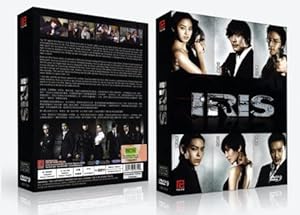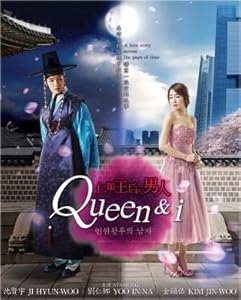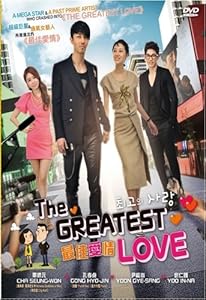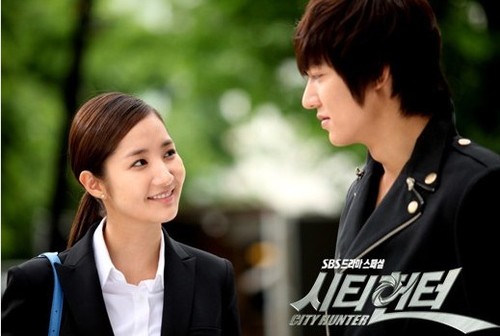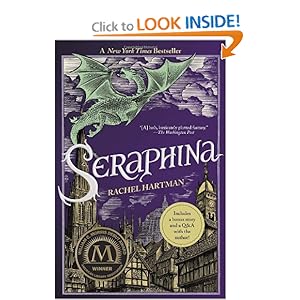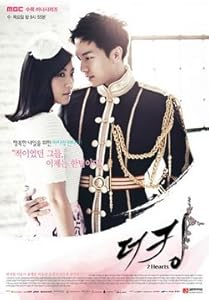So, here are the Korean drama series (K-dramas)that I’ve watched so far. Links are to full reviews.
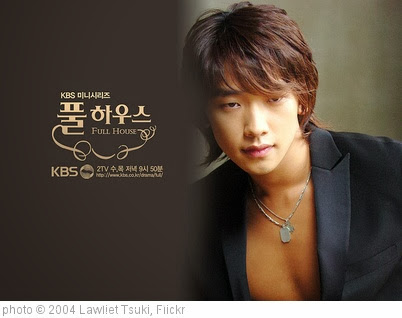
Full House. Romantic comedy with an implausible premise but irresistible characters and romantic scenes.
Queen Inhyun’s Man, aka The Queen and I. This one is an historical/time travel romance. A modern actress falls for a medieval (late 1600′s) hero who has a magic scroll that transports him back and forth in time.
King 2 Hearts. In an alternate history Korea, South Korea has a king with an irresponsible little brother, Prince Jae Ha. North Korea is still communist, but the two countries are trying to make peace by means of participating in a military contest together with a joint Korean team. Hang Ah is the star of the North Korean military contingent, and she and Jae Ha spar and eventually come together in an attempt to bridge the cultural gap between North and South. This drama is still my favorite K-drama ever.
Headmistress at The Common Room on King2Hearts.
City Hunter is a superhero drama, an Asian take-off on Batman with complications. Actor Lee Min-Ho is Yoon-sung, a young man who has been trained from birth to take revenge on the men who killed his father. Kim Nana is a complication who threatens to sidetrack Yoon-sung in his program of revenge, but he maintains his secret identity as City Hunter to protect Kim Nana from his sad, dangerous, and lonely mission.
Iris (Season 1) Unusual for K-dramas, this series has at least two seasons. I’ve only watched the first one. A spy thriller, lots of violence, fascinating, conflicted characters. My Semicolon review here. I think I’ll try the second season soon, which I’ve heard is even better than the first one.
The Greatest Love is a much lighter romantic comedy, a mash-up of Pride and Prejudice, A Star Is Born, and several soap opera plots. It was rather disconcerting to see actress Yoo In-na, who was the cute and perky leading lady in Queen Inhyun’s Man, playing the bad girl in this romcom. Doko Jin, the Darcy character, is way too proud for his own good, but he does eventually come down to earth, and the eventual resolution of the conflict is rewarding and fun to watch.
Reviewed by The Headmistress at The Common Room.
Flower Boy Next Door. Enrique Geum (Yoon Si Yoon) is a popular video game star from Spain, and Go Dok Mi is a reclusive writer who guards her heart because she has been hurt deeply in the past. When Enrique catches Dok Mi spying on him —with binoculars–the fun begins as he pursues her. The boy next door, Jin Rak, is also interested in Dok Mi, but she just wants to be left alone–or does she? Dok Mi has one mood throughout: sullen and pouty and depressed. Nevertheless, the story was fun, and Enrique/Yoon is cute.
I Miss You Terribly sad melodrama dealing with sensitive themes such as child and spousal abuse, desertion, bullying, kidnapping and rape. It’s also about identity. Who am I? Am I who I decide to be? Is my family the people to whom I was born or the people I decide to make my family? And what about redemption and forgiveness? The ending, which is what I’ve learned you have to watch for in K-dramas, is heart-rending, but satisfying.
That Winter, the Wind Blows is a melodrama about a poor little rich blind girl who has no one to trust. Her father has just died (in mysterious circumstances). Her “step-mother” is really her father’s mistress and may be after her money. Her fiancé also may have ulterior motives. So she goes looking for her long lost brother from whom she was parted at the age of five, before she went blind. Unfortunately for her, the brother she finds isn’t her real brother. Complications ensue. The cinematography is beautiful in this one, and the acting is excellent, except when they linger too long on the hopeless, longing looks. But the ending is (warning!) really, really ambiguous and unsatisfying.
Dream High is a rom-com set in a performing arts high school. The Headmistress compares it to the American TV series Fame. Lots of competition, winning and losing, who’s the best singer/dancer/composer/performer. And there’s some cute romance among the (older) teachers and parents and among the students.
King of Dramas is a drama about making K-dramas. The leading characters are all K-drama writers or actors and actresses or producers. The Headmistress says it’s filled with inside jokes, which obviously went over my head, but I enjoyed the sort-of inside look at the industry anyway. The ending is rather unbelievably sappy, but I didn’t mind. It was much better than a more realistic ending would have been.
Heirs is a fairly new K-drama (fall 2013) starring Lee Min-ho, an incredibly cute and popular actor who also starred in City Hunter and a popular one I couldn’t get into, Boys Over Flowers. Lee Min-ho was good in this drama about high school puppy love among the rich and famous, actually rich boy and poor girl. The girl was a little bit annoying with all the pouting and enduring sadness. The girl’s mom was mute, and I enjoyed her character. The actress who played the mom was excellent. The rich dads in this drama are all horrible, and the rich moms aren’t much better. And yet the children try really hard to respect and obey their villainous parents. It’s a Korean thing, and I’m not sure it’s a bad Korean thing since most parents aren’t nearly as autocratic and manipulative and unreasonable as the parents in Heirs. At least, parents in the USA aren’t that bad, and I hope they aren’t in Korea either. I liked Heirs, and I agree with what The Headmistress says about the relationship between the brothers. However, the American in me really wanted both brothers to walk away from their dictator daddy and start their own company. They nearly did, but all is forgiven in the end.
I tried to watch You Who Came from the Stars—three different times—on the strength of recommendations from lots of K-drama fans, but I just couldn’t get interested in the same way that I fell into most of the above. I must have missed something that everyone else loved, but I don’t know what it was. I watched several, actually many, episodes, but the magic just wasn’t there for me.
Th K-dramas I’m going to try next: IRIS 2, God’s Quiz, It’s Okay That’s Love, Marriage Not Dating, Scent of a Woman, What’s Up?, Shut Up Flower Boy Band, When a Man Loves, and Pasta. Most of these suggestions I got from this post at The Common Room.


